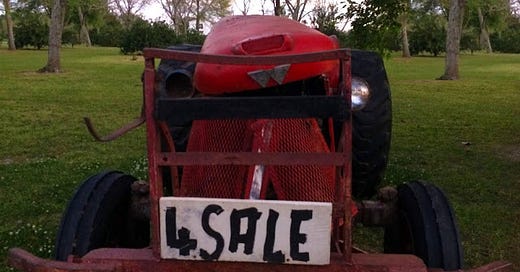They don’t make metal the way they used to…at least not in Alabama

And so the two men — one 86 and the other 10 years younger — chuckled about who was older, who had seen more, and who really was an old man.
Jack the elder, bald and sun-scarred, in baggy overalls steering an electric golf cart laden with tools and gas cans, boasted he joined the US Navy at 16 years. He lied about his age and… he said as if to impress me since I am half Japanese…he finally got to see snow when stationed at Sasebo, during the McArthur occupation (1945–52).
My husband Ben, the younger, pony-tailed and sprite in a button-down shirt and well fit jeans, was then, still a boy in the Austrian Alps with dreams of flying. He would learn to fly at the age of 14, riding a bicycle to the airport and hopping into a Fouga Magister jet trainer, sitting on a pillow his mother made so he could see out of the windshield.
Both men touched, tapped, wiggled shift gears, poured gasoline, cupped carburetors and lifted and lowered levers, and finally, stood back and admired the row of tractors and PTO attachments for sale on Jack’s lawn.
I spied a healthy set of row discs lodged between a 1930’s train luggage cart and a rusting 1970 brush hog. The row discs’ metal patina was an oily iron — a color combination alive with browns, greys, and blues and near black — but never black, for black is an absence of color.
The disc edges were smooth and evenly worn. No chips. No weakness. Strong and ready to cut the earth.
Jack and Ben joined my side and admired the row discs with me. They were too big for the tractor we wanted to buy from Jack, nonetheless, they were eye-catching.
I said, “I’m surprised these haven’t rusted in the salty air here.”
“They don’t make metal like they used to,” Jack snorted.
“How old are they?” asked Ben.
“WW2,” said Jack.
Just about your ages, I thought



